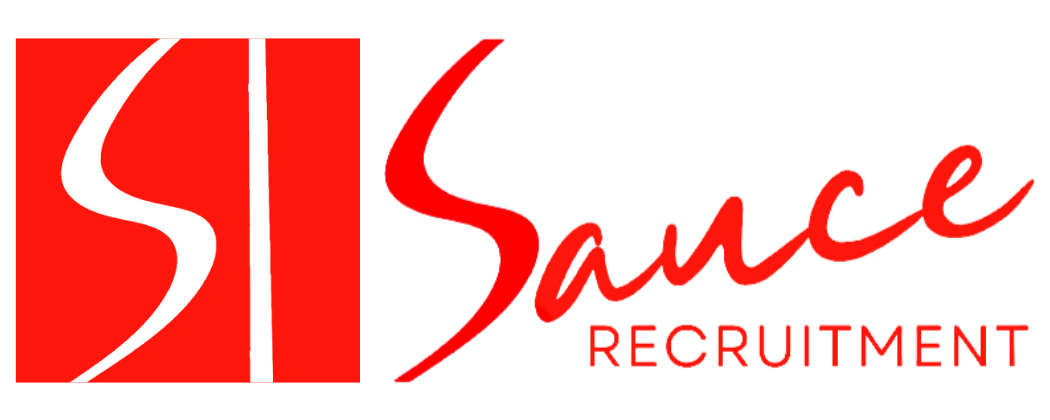Even though we have all interviewed for a new role, or many, somehow expectations on both sides of the table always feel like a mystery. Knowing what to wear, how early to arrive, what’s the right amount of time to wait before following up, can feel like one of life’s great mysteries, right up there with “Why does my internet only cut out during Zoom meetings?” Outside of an interview situation, the answers to these questions may seem simple, but somehow we start to question EVERYTHING as soon as we are faced with a formal interview.
Whether you’ve been working in the Insurance Industry for 25 years or 2, interviews can be nerve-wracking. Sauce Recruiters are masters and helping candidates prepare for interviews because we know the best remedy for interview nerves is setting expectations. That’s why we are opening up the unwritten rule book of INTERVIEW ETIQUETTE for both Insurance candidates and companies.
Candidates: Confidence is in the little details!
Candidates, we think, for the most part, this information will not come as a surprise. The thing is, when we get into that interview mind space, it can sometimes throw our confidence for a loop. Here are the most common questions we know candidates need CONFIRMED in order to get their confidence back and nail their interview:
-
Do I really need a copy of my RESUME and COVER LETTER?
You can probably guess PART of our answer here… Yes to a copy of your Resume but, if you are working with a Recruiter, no cover letter necessary! Your recruiter is your personal hype-person. For any position they make the connection is your introduction, there’s no need to double up with a formal cover letter. Think of a Recruiter as your professional matchmaker—without the awkward small talk.
-
What should I WEAR?
This question may sound elementary, but when you are faced with an interview, all fashion confidence flies right out of your head. There are three things to remember when dressing for an interview: (1) Clean, (2) Professional, and (3) Comfortable. No need to dust off your three-piece suit, but a professional outfit that’s neat and well-fitted offers a great first impression. Pro tip: avoid anything that could double as pajamas—even on Zoom!
-
How early should I ARRIVE?
Ten to fifteen minutes is the sweet spot. Any earlier and you might throw your interviewer off leaving them scrambling to make time early. Any later… I’m sure you can guess. In the Insurance Industry we are all about mitigating risks—don’t make being late your first impression and risk losing out the offer as well as your reputation.
-
When should I FOLLOW UP?
Using a Recruiter sure comes in handy here! If you are taking an interview solo, however; ask during the interview what the next steps are and how long the process is expected to take. If you don’t hear back by then, feel free to follow up with the HR Manager or nudge your Recruiter to check in on your behalf. Take full advantage of having that Recruiter on your team!
-
Any tips on handling NERVES?
No one likes feeling like they’re in the hot seat, but remember: the interview is as much about you figuring out if YOU WANT to work for the company as it is the other way around. Take a deep breath, be yourself, and don’t be afraid to ASK QUESTIONS too. In our experience, successful candidates make an IMPRESSION by asking questions which can often get them the offer.
-
What QUESTIONS should I ask?
Instead of the typical “What’s the company culture like?” try asking, “How does the company support professional development?” or “What does success look like in this role?” LONG-TERM questions like these show you are committed to the role, and not just looking for a bump in pay.
-
Should I follow up if I DIDN’T get an offer?
Yes! Remember to use your Recruiter if you have one, but even if you don’t, it’s worth reaching out to ask for feedback. Companies can give you valuable insight that might help you land the next one. Plus, it shows you’re open to learning and improving—always a good look, especially if your paths cross again in the future.
Companies: Bottom lines are respect and communication
If you are a hiring manager or HR we know you want to attract top-tier talent. Knowing how to TREAT CANDIDATES during the process sets up your company ( and yourself personally ) with a stellar reputation as an employer and keeps those high performers looking for roles with you. Here’s what candidates are politely hoping you’ll get right:
-
How long is too long for a CALLBACK?
A good rule of thumb is to get back to candidates WITHIN ONE WEEK of their interview, even if that means telling them you extended your timeline. Put yourself in a candidate’s shoes… If you were excited to hear about a potential new offer, your patience would be short too. Dragging out the process or leaving candidates hanging can leave them feeling forgotten—and you risk them moving on to the next opportunity.
-
Do you contact EVERY candidate?
Yes, please! A simple “Thank you, but we’ve decided to move forward with another candidate” is so much better than radio silence. Ghosting isn’t cool in dating, and it’s not cool in recruiting either. Giving bad news never feels good, but it’s the RIGHT THING to do. If they weren’t the right fit this time, they will still appreciate the PROFESSIONALISM.
-
How much INFO do candidates need?
Transparency is key. Let candidates know how many interview rounds there will be, who they’ll be meeting with, and what the general timeline looks like. People don’t like being left in the dark—especially when it comes to exciting opportunities.
-
Do I have to offer FEEDBACK if asked?
It’s not required but, offering constructive feedback—even if it’s brief—can leave a positive impression. We know you are busy but candidates appreciate the effort and will be more likely to apply again or recommend your company to others. You never know when a candidate you passed on for one role might be the perfect fit for another.
Interviews are a TWO-WAY street
Interviews are a balancing act between candidates putting their best foot forward and companies making the right impression. The best career matches are made when a relationship starts off on the right foot – with respect, transparency, and communication from everyone. Whether you’re the one doing the hiring or the one hoping to be hired, we say, treat everyone as you would like to be treated if roles were reversed and you can’t go wrong.
Happy interviewing!





